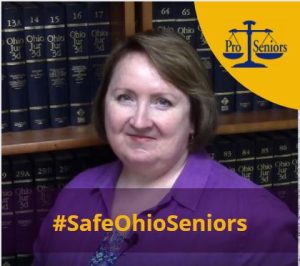Skilled Scammers!
Scammers are very, very good at what they do. They will use telephone, mail, door-to-door solicitations, fliers, emails, texts, or phony websites to make contact with potential victims. Everyone is a potential target, but scammers like seniors because they assume that seniors live alone, have a nest egg, and are more polite toward strangers.
What they want: your money, your Social Security number, and your Medicare number. Guard these fiercely. NEVER, EVER give money, your Social Security number, or your Medicare number to someone who initiates contact with you via email, phone, or home visit.
“When I hear someone say that only stupid people fall for fraud, I feel like asking for that person’s phone number. But here’s the thing: I didn’t want to talk to stupid people, because stupid people don’t have $50,000 lying around to give me. You would be amazed at how many doctors, lawyers, engineers and college professors I ripped off. The bottom line is, fraud is a crime that can happen to anyone, given the right con man and a victim with the right set of circumstances.” From “Confessions of a Con Artist” in AARP The Magazine by Doug Shadel
Together, we can equip people to recognize and avoid these scams! Call Mary (info@proseniors.org) to request a presentation for your activity center, community group, faith group, or other audience. (In southwest Ohio, we offer in-person presentations; online presentations are available in other parts of Ohio.)
 Signs of a Scam
Signs of a Scam
- You’re pressured to “act now!” You have to make up your mind right away.
- There is an emotional trigger by playing into fear, greed, hope, or excitement. For example, they may threaten that you will be arrested, prosecuted, or sued if you don’t do something immediately. Or they may claim you are going to get rich.
- You’ve been specially selected (for this offer).
- You’ve won a contest you’ve never heard of or entered; you’ve won a valuable prize; or you’ve won big money (often in a foreign lottery).
- You’re asked to wire money, or use a prepaid money card, or read gift card numbers over the phone.
- You have to pay a fee to receive your “prize.”
- Your personal information is requested.
- You’re asked to provide remote access to your computer or other electronic devices.
- A large down payment is requested.
- You’re told not to tell friends and family about the conversation.
- A company refuses to provide written information, or says you don’t need to check our company with anyone.
- A company has no physical address, only a P.O. Box.
Protect Yourself
- Hang up the phone. Don’t press 1 to speak to a live operator or any other keys to take your number off the list. Don’t worry about being impolite. Just hang up.
- Research businesses and charities. Never pay money to a person or a company that refuses to give you written information, a phone number, a physical address, or references.
- Keep your credit card, checking account, Medicare number, and Social Security numbers to yourself. Never give personal information to someone you don’t know or trust, even if they ask you to “confirm” this information. That’s a trick.
- Resist the pressure to make a decision immediately. Take your time. There are very few legitimate offers out there that can’t wait for you to do some due diligence and make a rational decision.
- Don’t pay for something just because you’ll get a “free gift.”
- Don’t agree to any offer for which you have to pay a “registration,” “shipping fee,” “processing fee” or “taxes” to get a prize or a gift.
- Never wire money to a stranger. Don’t send cash by messenger, overnight mail, or money transfer.
- Beware of offers to “help” you recover money you have already lost. Callers who say they are law enforcement officers who will help you get your money back “for a fee” are scammers.
- Report scams and any caller who is rude or abusive, even if you already sent them money. Call the Ohio Attorney General at 1-800-282-0515 or file a complaint at www.OhioAttorneyGeneral.gov.
- Sign up for the Do Not Call Registry at donotcall.gov or call 1-800-382-1222.
Consider any pressure to act fast as your cue to say no
Types of Scams
Resources
Federal Trade Commission
Specific Scams
Federal Trade Commission Publications
Charity Fraud
Health Care Scams
Identity Theft
Identity Theft Recovery Plan
Imposter Scams
Phone Scams
You’ve Won Scams
Office of the Ohio Consumer’s Counsel
Cybersecurity Help Information and Protection Program
Elder Fraud
Financial Exploitation of Older Adults
Identity Theft Self-Help Guide (archived)
Phone Scams Checklist
Senior Advocate Fraud Education (SAFE) (Archived)
Together, we can equip people to recognize and avoid these scams! Call Mary (info@proseniors.org) to request a presentation for your southwestern Ohio activity center, community group, faith group, or other audience.
